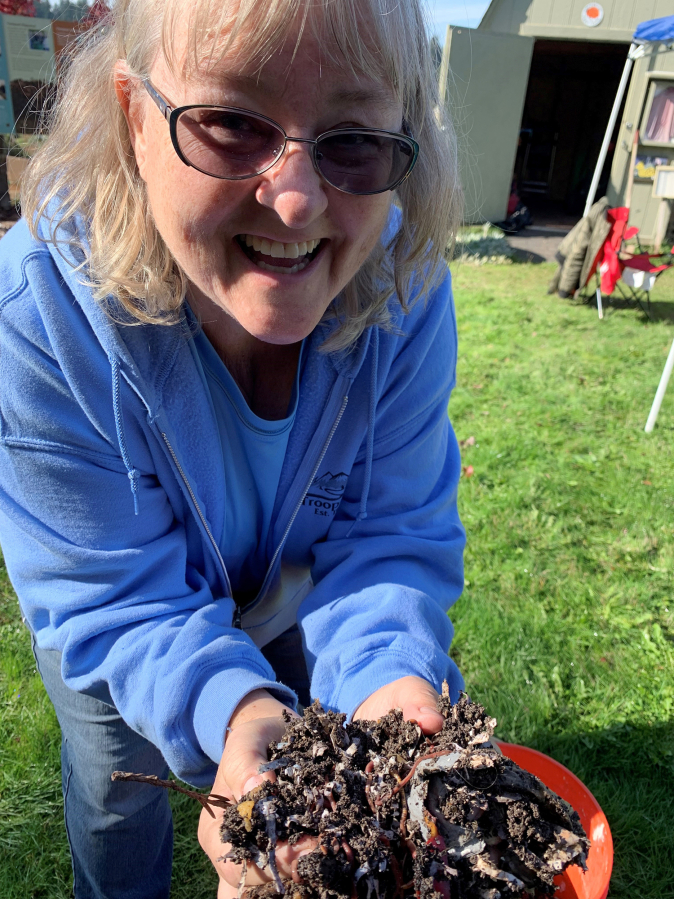Here are some stomach-churning statistics about food waste:
Americans throw away one-quarter of all the food and beverages we buy. In Washington, food accounts for 16 percent of the total waste stream, or 1.2 million tons per year, making it the single largest component of all landfilled garbage. About 60 percent of Washington food waste comes from commercial sources, but one-third is generated by people at home.
That’s all according to the Use Food Well Washington Plan, developed by the Department of Ecology to comply with a new law that requires statewide reduction of food waste by 2030 to half of what it was in 2015.
Food waste poses both economic and environmental problems, according to the Use Food Well plan. In terms of dollars, an estimated $218 billion is spent in the U.S. to produce food that is never eaten; at the retail and consumer levels, food loss and waste total $161 billion.
Nutrients that languish in landfills rather than returning to the soil rot and generate methane, a potent greenhouse gas that traps heat far more effectively than carbon dioxide. That’s right: Simply throwing away that eggshell, orange rind or broccoli stem contributes to global warming.
It’s an insidious and stinky set of challenges, said Pete DuBois, a Clark County environmental outreach specialist. But the good news is, lots of local folks are taking it on. They’re digging into home composting, learning to recycle right and trying to reduce the sheer amount of waste they generate to begin with. (That’s why the first of the “three Rs” is “reduce,” before “reuse” and “recycle,” DuBois said. Recycling the plastic you purchased is good; not buying plastic in the first place is better.)
To help us achieve a cleaner, greener way of life — and stop banishing useful nutrients to landfills where they don’t belong — Clark County is offering another in its series of free Master Composter Recycler training courses. Normally offered live, this winter’s pandemic-adapted course will be livestreamed via Zoom 7-8:30 p.m. on seven Wednesday nights. Each session will tackle a different aspect of green living:
- Feb. 2: Backyard composting
- Feb. 9: Worm bin composting
- Feb. 16: Lasagna (layer/sheet) composting
- Feb. 23: Composting science
- March 2: Green (nontoxic) cleaning
- March 9: Recycling done right
- March 16: Preventing food waste, curbside composting
“ ‘Sustainable’ is a slippery word, but this program tries to give people a broad, general education in more sustainable living,” DuBois said.
Such programs have seen record attendance in recent years, he said. In part that’s due to the coronavirus pandemic and the nation of homebodies we’ve become.
“People have had more time at home and more interest in developing these skills,” he said.
To register, visit clarkcountycomposts.org. Participants will receive a confirmation email after applications are reviewed. For more information, call 564-397-7333 or email mcr@clark.wa.gov.
Blue cart blues
The Master Composter Recycler course is open to anyone, DuBois said, but it’s hoped that folks who take the training will volunteer to be “sustainability ambassadors” by spreading their new knowledge at community events, or even just in their own neighborhoods, homes and families.
For example, an essential element of the course is a refresher on what does and doesn’t go into your main blue recycling cart. That’s never as straightforward as it looks, DuBois said, and it’s all too common for folks to “wishcycle” items that sure seem recyclable but aren’t.
Plastic lids and plastic takeout containers, plastic-film grocery bags, Styrofoam and refrigerator- or freezer-compatible cardboard boxes are prime examples of items that get “wishcycled” in those blue bins all the time. They must get fished back out and trashed before the rest of the recycling load can go forward, DuBois said.
“ ‘Recycling done right’ doesn’t mean filling up your blue bin to the brim with all the wrong things,” he said. “We want to make sure people are putting the right things in the blue recycling cart — and we want to make sure people know there are other ways to reduce and recycle beside that cart.”
Like taking your single-use plastic bags back to the supermarket, he said, or signing up with commercial services like Ridwell or RecyclePlus, which charge a small fee to collect and recycle the plastic clamshells, single-use bags, Styrofoam and other items that cannot go in your regular blue recycling bin cart.
“It takes a little more effort and expense,” DuBois said.
Local composting options have also grown, he said. In Vancouver, Ridgefield and Camas, your optional yard-debris pickup service now includes food waste in the same green “organics” bin. When this program first rolled out, the city also provided kitchen pails where you can dump your food scraps at first.
While that service isn’t available in the unincorporated county yet, DuBois said he’s working on it. In the meantime, county residents are welcome to request no-cost, 18-gallon worm bins. Nontoxic cleaning kits for home use — combining ingredients like vinegar, baking soda and isopropyl alcohol — are available too. To obtain these, visit clarkcountycomposts.org and look for the worm-bin and green-cleaning-kit request forms. (Supplies are limited, DuBois said, and for either freebie, you’ll need to certify that you’ve taken the training or at least watched an online training video at clarkcountycomposts.org/virtual-learning.)
“Worm bins are a great way to manage your food scraps and generate some great fertilizer at home,” DuBois said. “Worm bins are keeping thousands of pounds of organic material out of landfills right now.”




